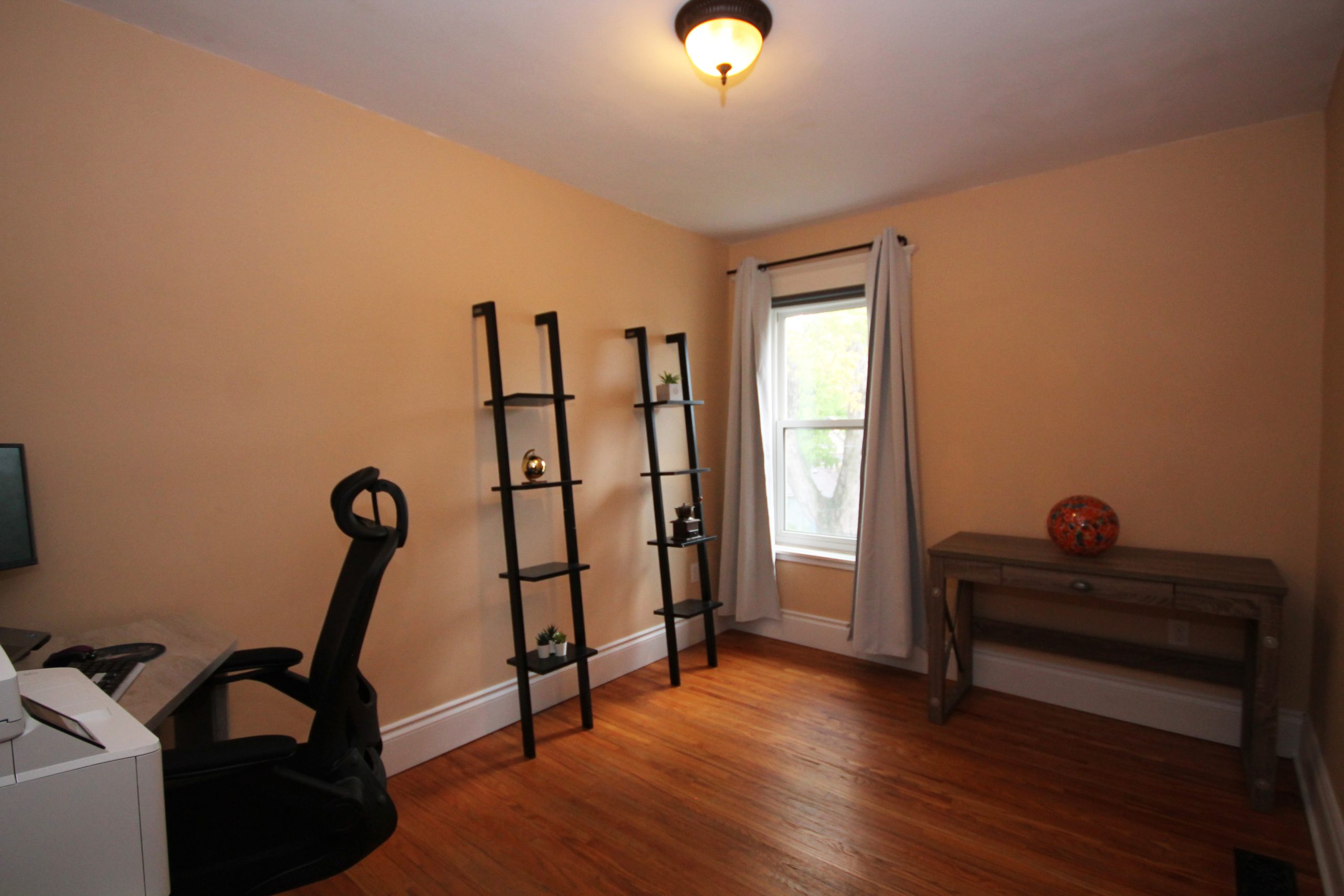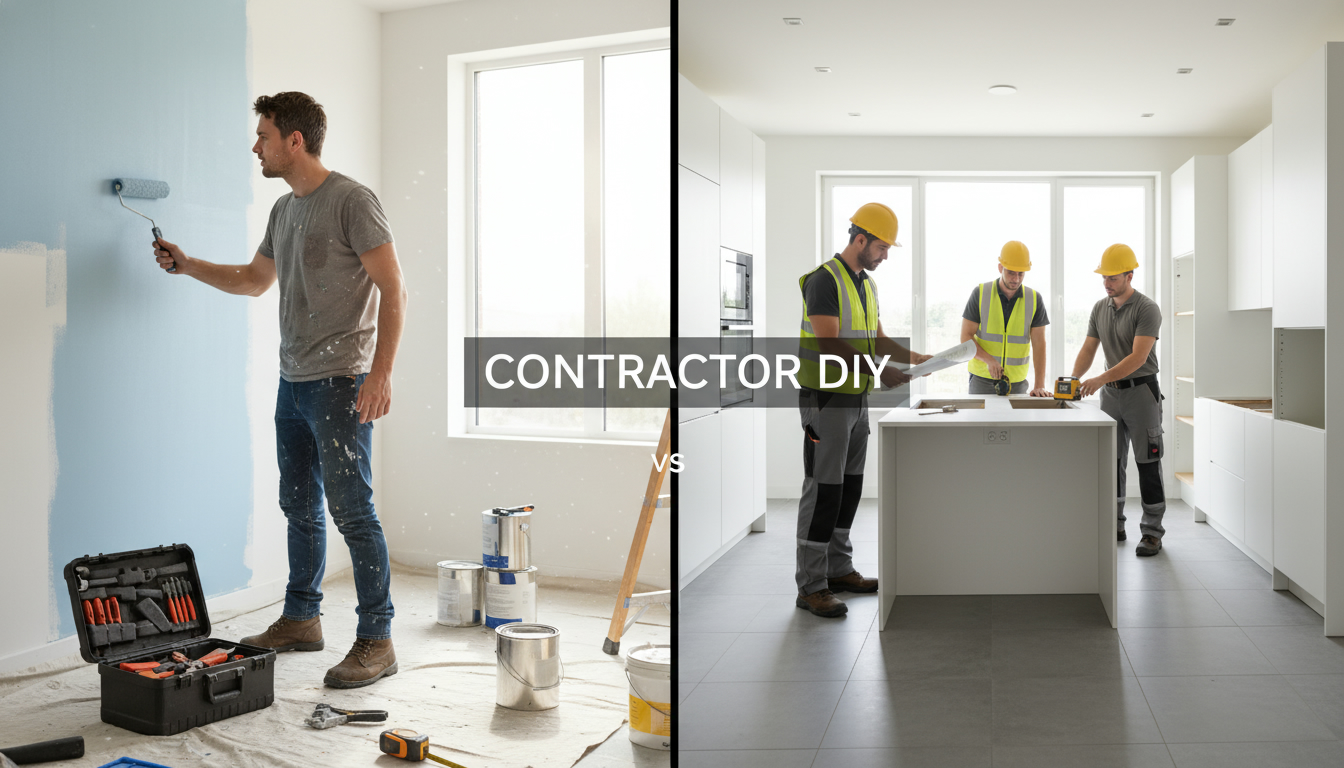Should I hire a contractor or DIY renovations?
Stop guessing: Hire a contractor or gamble with DIY renovations?
Quick answer — pick by value, risk, and timeline
If you want speed, warranty, and predictable costs, hire a contractor. If you want to save money and have trade skills, small projects and patience, DIY may work. The real question: what do you value more — time, safety, resale value, or immediate savings?
When to hire a contractor
- Structural, electrical, plumbing, or permit-required work. Mistakes here cost five times more to fix.
- Whole-kitchen, full-bath, or major layout changes. Contractors manage trades, timelines, and inspections.
- When resale value and finish quality matter. Buyers and appraisers notice professional work.
- When you need speed. Contractors run crews and hit milestones.
What to expect: clear scope, written contract, timeline, payment schedule, permits, and a warranty. Add a 10–20% contingency to your budget.

When DIY makes sense
- Cosmetic updates: paint, trim, tiling small areas, replacing fixtures.
- Projects you can finish in evenings without delaying life.
- When you already own tools and know the trades.
Be honest about your skill level. If you aren’t confident with wiring, plumbing, or load-bearing walls — stop. Learning on the job costs time and money.
Quick cost comparison (rule of thumb)
- DIY saves labor costs (20–50%) but increases time and risk.
- Contractor work adds labor cost but reduces mistakes and provides warranty.
- Complex jobs: contractor costs often offset by faster completion and higher resale value.
Vet contractors like a pro
- Check license and insurance. No license = no hire.
- Ask for 3 bids with identical scopes. Lowest isn’t always best.
- Get references and view past projects.
- Sign a clear contract: scope, timeline, change-order process, payment schedule, and warranty.
- Hold 10% back until final inspection.
Common pain points — and the fix
- Surprise costs: use fixed-price bids and a contingency.
- Scheduling delays: set milestones and penalties in the contract.
- Poor quality: require materials specs and interim inspections.

Final rule: match risk with expertise
If a mistake will ruin value or safety, hire the pro. If you enjoy the work, can tolerate delays, and keep quality high — DIY parts and hire for the rest.
Need a trusted local guide? I specialize in Renovations & Upgrades and help homeowners choose the right path for value and resale. I’ll connect you with vetted contractors, review bids, and forecast ROI so you don’t guess.
Contact: Tony Sousa — tony@sousasells.ca | 416-477-2620 | https://www.sousasells.ca
Call or email to get a renovation checklist and contractor vetting template.





















